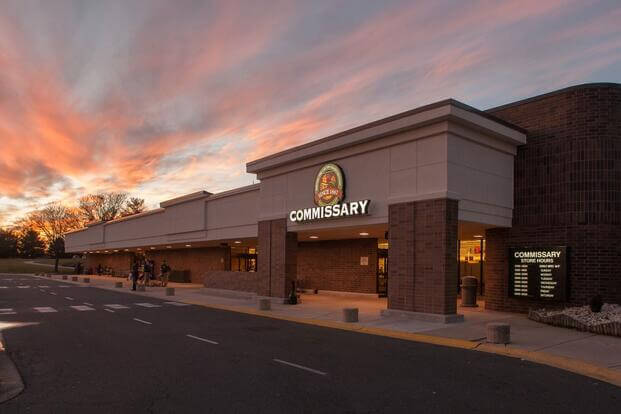As the federal government shutdown continues into its second month, military service members and their families who live within range of a commissary – and especially the 1.6 million holders of a Military Star credit card – nevertheless have a good chance of accessing food benefits ahead of Thanksgiving and through the month of November.
The Army and Air Force Exchange Service, which administers Military Star cards for all services under the Exchange Credit Program, announced Oct. 31 that it was extending its “relief offer” of interest-free commissary purchases through November, with payments deferred for up to 90 days.
Retired Army Brig. Gen Michael Meese, CEO of the American Armed Forces Mutual Aid Association, said offering interest-free, payment-deferred groceries is a “great move” by the exchanges, “and so, fortunately, that should mean anybody who can get to a commissary should not have problems being able to access food.”
The Defense Commissary Agency predicted at the outset of the shutdown, which began Oct. 1, that it could operate stores for 60 days – and get customers through the Thanksgiving holiday – after which many stores, especially in the contiguous U.S., might close without additional funds.
Read More: ‘SNAP Is Everything’: Military Families, Vets Prepare for Empty Fridges
The commissary grocery offer applies to existing and new holders of a Military Star card, according to AFFES. The cards are available to military personnel including active and reserve members, retirees and disabled veterans.
Meese said Armed Forces Mutual has communicated with members to try to gauge any effects of the shutdown and has “seen a lot of anxiety” so far. “People are worried about the uncertainty and are stressed, especially if they don’t have any kind of emergency funds.”
Having already tapped accounts intended for other purposes, the source of funds to cover yet another military payday, if the shutdown continues, was unclear, as additional effects continue to represent possibilities, Meese said.
Military families and veterans who rely on Supplemental Nutrition Assistance Program benefits still faced uncertainty about the availability of those funds at the outset of November. Meese said Armed Forces Mutual hadn’t yet heard of instances in which Tricare beneficiaries had been affected by delayed reimbursements but that the windows in which many patients might expect to receive those reimbursements could still be open.
Want to Learn More About Military Life?
Whether you’re thinking of joining the military, looking for fitness and basic training tips, or keeping up with military life and benefits, Military.com has you covered. Subscribe to Military.com to have military news, updates and resources delivered directly to your inbox.
Story Continues
Read the full article here





